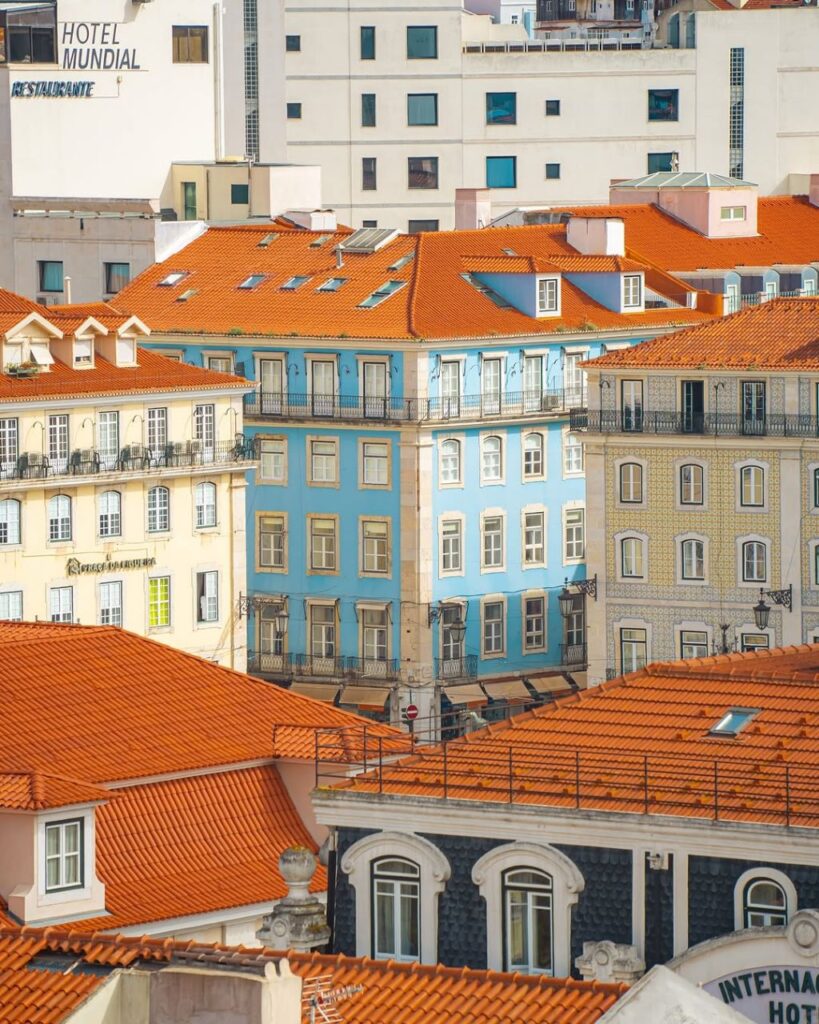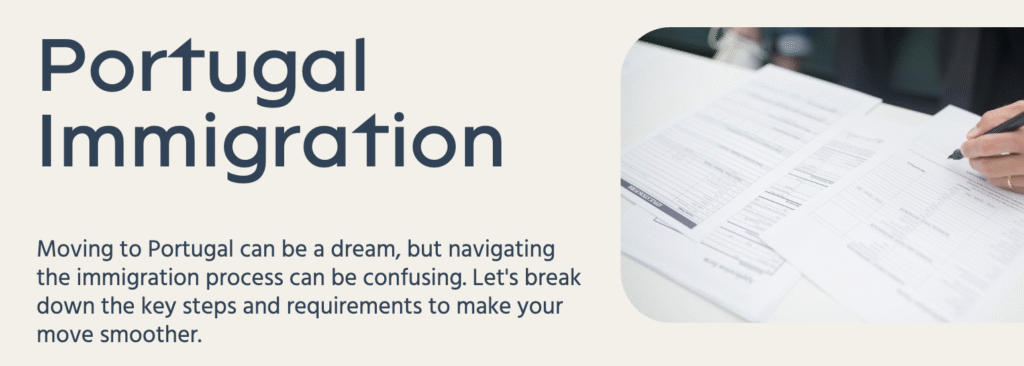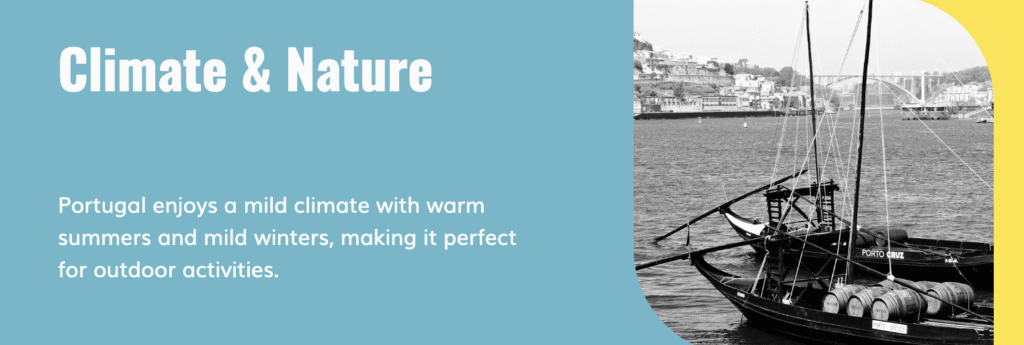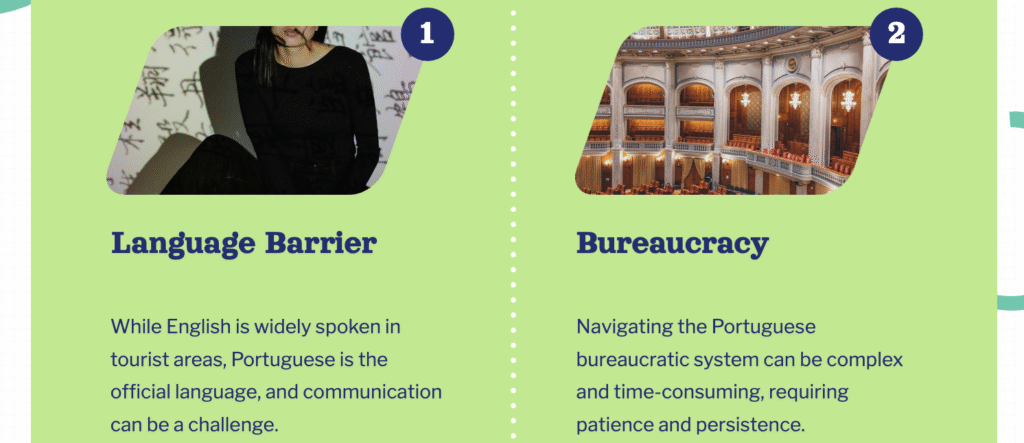Table of Contents
ToggleIs Portugal Easy to Immigrate To?

Portugal, with its stunning landscapes, warm climate, and rich cultural heritage, has become an increasingly attractive destination for people looking to start a new chapter in their lives.
Whether you’re drawn to its historic cities, beautiful beaches, or the renowned Portuguese cuisine, relocating to Portugal offers an exciting opportunity.
Beyond its scenic beauty and culinary delights, Portugal boasts a welcoming community and a high quality of life, making it an appealing option for expatriates from around the world.
Before making the move, it’s crucial to get a handle on Portugal’s Immigration Process. Having a clear understanding of what’s required can help you avoid any surprises down the line. Whether you’re planning to work, study, retire, or invest in Portugal, there are specific visas and residency options tailored to different needs.
For those eyeing employment opportunities, the Work Visa can pave the way. Students looking to further their education can opt for a Student Visa, while retirees can find solace in the Retirement Visa, designed specifically for those golden years.
Investors have the option of the Golden Visa, which has gained popularity due to its flexibility and the benefits it offers to those who invest in Portuguese real estate or contribute to job creation.
Each type of visa has its own set of requirements and steps, so careful planning and preparation are key. Navigating through this process might seem daunting at first, but with the right information and resources, you can make the transition smoother.

When considering the ease of immigrating to Portugal, there are several factors to keep in mind. Portugal’s welcoming nature towards foreigners is a significant plus, and the visa application process is relatively straightforward compared to other European countries.
The Golden Visa program, for example, has been a popular choice for investors due to its flexibility and the benefits it offers, such as the ability to travel within the Schengen Area.
On the flip side, the bureaucratic aspects of Portugal’s Immigration Process can pose challenges. The paperwork and documentation requirements can be time-consuming and complex, particularly for those not familiar with Portuguese administrative procedures. This can be more cumbersome when compared to countries with more transparent systems like Canada or New Zealand.
Another important aspect to consider is the need for thorough preparation. Gathering all required documents and understanding each step of the visa process is essential for a smooth transition. Seeking help from immigration consultants or lawyers can be beneficial, especially for navigating intricate bureaucratic requirements.
Additionally, while English is commonly spoken in tourist areas and larger cities, learning Portuguese can be a crucial factor in easing your transition and integrating into the local community.
Mastering the language will help with daily activities and improve your overall experience in the country.
Despite the challenges, many find that the benefits of relocating to Portugal such as the high quality of life, affordable cost of living, and welcoming communityoutweigh the hurdles.
With the right preparation and mindset, the process can be more manageable, allowing you to enjoy all that Portugal has to offer.
Understanding Portugal's Immigration Process

The first step in Portugal’s immigration process involves gathering essential documentation. Typically, this includes a valid passport, proof of financial means, and a clean criminal record. Additional documents might be necessary depending on your individual situation, such as marriage or birth certificates.
Portugal’s visa options cater to a variety of needs. For those seeking employment, the Work Visa is the most suitable. Students aiming to pursue their education in Portugal can apply for a Student Visa.
Retirees looking to spend their golden years in Portugal can opt for the Retirement Visa, designed to facilitate a smooth transition. For investors, the Golden Visa offers residency in exchange for investments in real estate or job creation.
Once you’ve determined the visa category that best suits your situation, the next step is to complete the application process. This generally involves submitting your documents to a Portuguese consulate or embassy, attending an interview, and paying any applicable fees. Processing times can vary, so it’s advisable to start this process well in advance of your intended move.
For many, one of the more challenging aspects is dealing with bureaucratic procedures. Portuguese bureaucracy can be intricate, requiring patience and careful attention to detail. Having a clear understanding of the steps involved and seeking assistance from professionals, such as immigration lawyers or consultants, can help streamline the process.
It’s also important to note that after securing a visa, new residents must register with the local authorities upon arrival in Portugal. This includes obtaining a residence permit, registering with the local health system, and possibly even setting up a Portuguese bank account.
Each of these steps is crucial to fully integrate into Portuguese society and enjoy the benefits that come with residency.
Benefits of Relocating to Portugal

Portugal is known for its high quality of life, characterized by a relaxed pace and a strong sense of community. The country’s cost of living is lower than many Western European nations, making it an attractive option for those looking to stretch their budget further without sacrificing comfort.
- Healthcare in Portugal is top-notch, with a public healthcare system that is accessible to all residents. This ensures that you receive quality medical care without the exorbitant costs found in some other countries. Additionally, there are numerous private healthcare options for those who prefer them.
- Education is another strong point. Portugal offers a range of international schools that provide quality education tailored to expatriate children. This is especially beneficial for families, ensuring that children receive a seamless educational experience.
- The climate in Portugal is another major draw. With mild winters and warm summers, the weather allows for a variety of outdoor activities year-round. Whether you enjoy beach outings, hiking, or simply lounging in the sun, Portugal’s climate makes it easy to enjoy an active and healthy lifestyle.

- Public transportation is efficient and affordable, making it easy to navigate both urban and rural areas. This is particularly advantageous for newcomers who may not yet have their own vehicles.
- Lastly, Portugal’s rich cultural heritage and diverse culinary scene add to the country’s appeal. From historic landmarks to world-renowned cuisine, there’s always something new to explore and enjoy. This makes everyday living in Portugal both exciting and fulfilling.
Common Challenges in Relocating to Portugal

Adapting to a new country often comes with a set of hurdles, and Portugal is no exception. One of the primary challenges is navigating the bureaucratic system.
- The paperwork involved in obtaining visas and residence permits can be intricate and time-consuming, especially for those unfamiliar with Portuguese administrative processes. It’s advisable to seek help from professionals like immigration lawyers or consultants to streamline the experience.
- Another significant challenge is the language barrier. While English is widely spoken in tourist-heavy areas and larger cities, proficiency in Portuguese is essential for integrating into the local community and handling day-to-day tasks, particularly in smaller towns. Investing time in language classes and practicing with locals can greatly ease this aspect of the transition.
- Understanding and adapting to local customs and social norms is also crucial. Portugal has its own set of traditions and cultural practices that may be different from what you’re used to. Building connections within the community, participating in local events, and showing a willingness to learn can help you feel more at home.
- Finding housing can be another obstacle. The rental market in popular areas can be competitive, and prices may vary significantly. It’s beneficial to conduct thorough research and possibly enlist the help of a local real estate agent to find a suitable place to live.
- Lastly, dealing with different time zones and the slower pace of life can be an adjustment. Many Portuguese businesses, especially in smaller towns, may close for extended lunch breaks or have different operating hours than you might be accustomed to. Patience and flexibility are key in
Final Thoughts on Portugal's Immigration Process
Navigating the path to immigrate to Portugal involves thorough preparation and understanding of the specific visa requirements. While the bureaucratic procedures can be complex and time-consuming, seeking professional assistance can significantly simplify the process.
Learning Portuguese can greatly aid in smoother integration into the local community and handling daily activities.
The benefits of relocating to Portugal, such as a high quality of life, affordable cost of living, excellent healthcare, and a favorable climate, often outweigh the challenges. With diligent planning and a positive mindset, moving to Portugal can be a highly rewarding experience.

